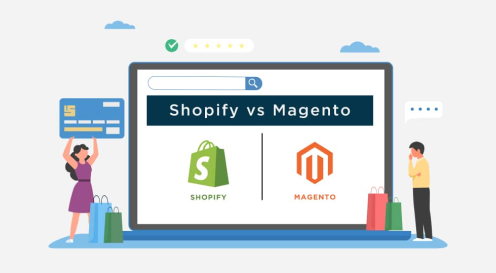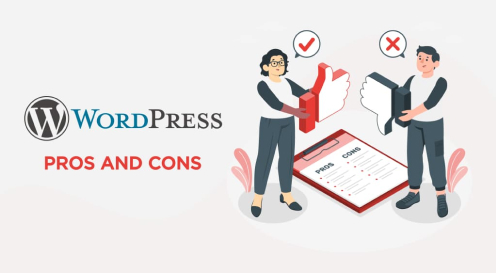How To Fix A Slow Website?
14 Mar 2024 | 6 min read
It’s tempting to always blame a poor Wi-Fi connection when websites take a frustrating amount of time to load properly – but did you know that it’s sometimes the fault of the website itself?That extra few seconds (or longer, as the case often is) of waiting for a page to load can sometimes be the difference between gaining a potential customer and losing one.Read on to learn more about why website speeds are so important to online sales and customer loyalty – and how to fix a slow website.

Why Website Speed Matters
Here are some simple but eye-opening statistics that clearly show why it’s so critically important that websites load quickly:
A quarter of all website users will abandon a website that takes longer than four seconds to load
Almost 65% of online shoppers who are frustrated by slow website load times will shop on another website the next time
Nearly half of people won’t use poorly performing websites in future
It may sound brutal, but even a delay of one second will cause over a quarter of potential leads to feel dissatisfaction
Let’s put that into stark context quickly:
You will lose a huge chunk of the leads that you’ve invested money in acquiring just as a result of your website loading too slowly (remember, the cost of acquiring a new customer is five times as much as keeping an existing one).
You could lose two-thirds of your potential new customers (and their long-term custom) to a competitor because they were frustrated by how long your website took to load.
Half of the people that didn’t enjoy using your website will never return again.
Today’s consumers and website users are incredibly impatient and have very high expectations.
What is Bounce Rate?
Bounce rate is the term used for the percentage of visitors that leave a webpage without performing an action, such as clicking on a call to action, filling out a form or making a purchase.
If your website is set up with Google Analytics, the bounce rate will be automatically recorded and very visible on your dashboard, because it’s one of the key website metrics.
The average bounce rate for a content-based website like this one is between 40%-60%, but you should be aiming for 30% or lower.
The average bounce rate for an eCommerce website is between 20%-40%. If you can get yours to below 20%, then you’re doing very well and no doubt enjoying some great lead conversion figures – well done!
But, if your bounce rate is high – that is, 41% or higher for an eCommerce site or 65% or above for a content-based site – then you have a serious problem with your website.
One of the biggest problems you may have is that your website is loading too slowly, causing leads and potential customers to flounce off elsewhere in frustration.
Yes, that’s right, you could literally be losing out on sales and customer loyalty because your website speeds are slow.

Slow Website Speeds Reduce Your Online Visibility
You will also lose online visibility and discoverability if your website speeds are slow. And that will have a massive impact on your ability to attract leads and make online sales.
As we’ve established, the longer a webpage takes to load, the higher its bounce rate will be.
The higher your bounce rate gets, the more suspicious Google and other search engines will become that users don’t actually find the content on your page useful. And, as Google in particular sets so much stall by great User Experience (UX), that means that your search engine rankings will suffer.
eCommerce sites meanwhile will definitely lose customers if their checkout pages are slow.

What Can You Do to Improve Website Speeds?
Online retailers and brands are finding themselves having to resort to increasingly complex and content-rich websites in order to satisfy ever-more demanding consumer expectations.
It’s tempting to invest in lots of shiny and exciting new content for your website. And yet it’s also very important to remember that your website can get slowed down to glacial speeds if you overload it – which, ironically, will hugely frustrate users and cause them to bounce off elsewhere.
There are a number of things that can affect page load speeds, but the right website development partner (like Chetaru!) will know how to mitigate against these factors.
Let’s take a look at a few below…
How big are your assets?
Oversized images and video – or having too many of them – can really be a drag on the performance of your webpage.
There are ways to fix these potential obstacles to good speeds, such as sizing your images properly or using images in a compressed JPEG format, so that they render properly.
Also be sure to compress all videos and, if possible, embed them using a 3rd party hosting platform, like Vimeo.
And keep that Bauhaus mantra ‘Less is more’ in mind when thinking about web design and content delivery.
The host with the most
Using a shared hosting platform has what seem like cost benefits on the surface of things.
But you could actually be falling into the trap of a false economy that results in slow web page speeds and annoyed potential customers.
If your website prides itself on fantastic content-driven user experiences, then it’s a very good idea indeed to invest in a high-performing VPS, managed or dedicated web hosting platform that you can truly rely on for fast and smooth delivery. Take the risk of opting for a cheaper option and it could end up costing you in the long-run.
Caching it in
We’ll try not to get too technical here, but needless to say that this tweak is beyond the skillsets of even the most rounded of marketers.
What do you know about cache?
In short, a cached web page will load far faster than a non-cached one, and reduce the load on the server by up to 80%.
Let’s break it down:
A cache is a storage space for temporary files that makes a device, webpage or app run quicker and more efficiently Cached data is used to quickly load an app or website for every subsequent visit, thereby improving future user experiences
Still too technical? Don’t worry – it’s something that an experienced website development partner will handle for you.
And that’s even before we get started on minimising HTTP requests, Gzip compressions, CDN…

In Conclusion
There are so many factors that could impact your website’s speed, and it’s incredibly important that you take them all into account if you want to continue to attract and convert leads.
We’ve briefly covered some of the key ones here, but there are loads more to consider.
And that’s why it’s so important to invest in the expertise, guidance and technical capabilities of a web development partner with extensive experience of helping businesses deliver great user experiences that generate sales.
Your website is the key to unlocking your brand’s success.
But, with so much fierce competition out there, you need your website to be performing at its best if it is to attract and convert leads.
That’s where Chetaru comes in. We create consistently fast, attractive and responsive SEO-optimised websites that help you stand out from the crowd.
Chetaru uses the combined power of great responsive design, UX, SEO, and sustainable ongoing content strategies to drive leads to your website and keep them coming back for more.
Get in touch with us at info@chetaru.com to discuss the next steps in your digital journey.


